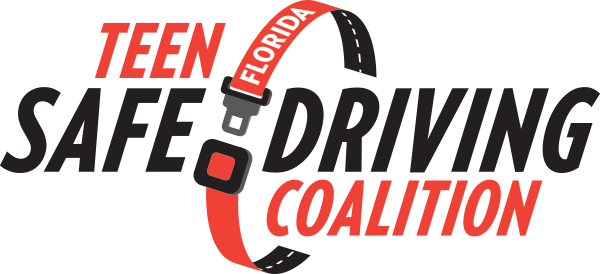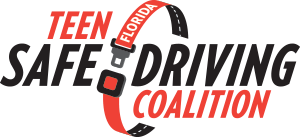
Encouraging Your Teen to Call You If They’re Ever in an Unsafe Situation
One of the greatest fears for parents of teen drivers is that their child might find themselves in a dangerous situation—whether it’s driving under the influence, riding with someone who is impaired, or being unable to get home safely. For many teens, the pressure to make the “right” choice in these situations can feel overwhelming, and the fear of punishment may prevent them from asking for help. As a parent, it’s crucial to foster a relationship with your teen that encourages open communication and trust, especially when it comes to situations that could put their safety at risk. By letting your teen know they can always call you—no matter the circumstances—you help create a safety net that could prevent a serious crash, injury, or worse.
Understanding Why Teens Hesitate to Call for Help
The teenage years are marked by a growing desire for independence and a strong sense of peer influence. Teens want to be seen as capable and self-reliant, especially in the eyes of their friends. Unfortunately, this can sometimes lead them to make decisions that prioritize social acceptance over safety.
One of the main reasons teens hesitate to call their parents for help is the fear of punishment. They worry that admitting they’ve made a poor decision—such as getting into a car with an impaired driver or attending a party where alcohol is present—will result in immediate consequences. The fear of being grounded, losing privileges, or disappointing their parents can outweigh their concerns about their own safety.
Additionally, teens often underestimate the risks involved in unsafe situations. They may believe that they’ll be fine if they only drive a short distance or that they’re capable of handling themselves in a dangerous scenario. This overconfidence can cloud their judgment, leading them to take risks they wouldn’t otherwise consider.
Building Trust and Open Communication
Creating an environment where your teen feels comfortable calling you for help starts long before they find themselves in a dangerous situation. Trust and open communication are the foundation of a relationship where your teen knows they can turn to you, no matter what. Here are some ways to build that foundation:
- Start the Conversation Early: Begin discussing difficult topics like impaired driving, peer pressure, and risky behavior long before your teen starts driving. By normalizing these conversations early, you reduce the stigma or awkwardness your teen might feel when discussing these issues later on. The Florida Teen Safe Driving Coalition’s “Safe Driving Guide for Teens and Parents” is a free resource to help start these conversations. View the digital version or request your physical copy here!
- Be a Good Listener: When your teen talks to you about their experiences, listen without immediately jumping to conclusions or handing out advice. Sometimes, teens just need to be heard. By showing that you value their perspective and understand their concerns, you foster an environment where they feel safe sharing their thoughts with you.
- Create a No-Judgment Zone: Let your teen know that they can come to you with any issue or mistake without fear of immediate judgment or punishment. Reinforce that their safety is your top priority, and that you would much rather they call you for help than risk their lives by making a dangerous decision. The message should be: “No matter what, I’m here for you.” Get tips, here.
- Admit Your Own Mistakes: Sharing stories of your own experiences as a teen—whether you made poor decisions or witnessed others making mistakes—can help normalize the fact that everyone messes up sometimes. By showing that you’ve made mistakes and learned from them, you let your teen know that it’s okay to be imperfect.
- Reassure Without Condoning: It’s important to strike a balance between reassuring your teen that they can call you without condoning unsafe behavior. Let them know that while you don’t approve of certain actions, you care more about their well-being and will always be there to help them get out of a dangerous situation.
Talking About Impaired Driving
One of the most dangerous situations teens can find themselves in is riding with an impaired driver or getting behind the wheel after drinking or using drugs. The combination of inexperience, impaired judgment, and risky behavior can lead to devastating consequences, including fatal crashes.
To prevent this, have an open and honest conversation with your teen about the dangers of impaired driving. Discuss how alcohol and drugs affect their ability to make safe decisions, react quickly, and operate a vehicle. Use real-life examples or news stories to highlight the very real consequences of driving under the influence.
While your teen might know that impaired driving is dangerous, peer pressure can sometimes lead them to make poor choices. Let them know that no matter the situation, they should never get into a car with an impaired driver and that you will always come pick them up, no questions asked, if they need a safe ride home.
It is never too early to start this conversation. Click here for resources to help you navigate the discussion.
Creating a Safe Ride Plan
It’s one thing to tell your teen that they can call you for help—it’s another to have a concrete plan in place to ensure they feel comfortable doing so. Here are a few strategies to create a safe ride plan that works for your family:
- The “No Questions Asked” Policy: Many parents establish a “no questions asked” policy for unsafe situations. This means that if your teen calls you for a ride because they or their friends are impaired, you agree to pick them up without immediately asking for details or doling out consequences. This policy removes the fear of punishment and reinforces the idea that their safety is your top priority.
- Use a Code Word: Sometimes, teens may feel uncomfortable or embarrassed calling their parents for help, especially if they’re in front of their friends. Establishing a code word or phrase that your teen can use in a text or call allows them to ask for help discreetly. For example, your teen could text something like, “Can you come get me? I forgot my math book,” and you would know that this is a signal for help.
- Plan Alternative Rides: In addition to calling you for a ride, talk with your teen about other safe alternatives, such as using a rideshare app like Uber or Lyft, calling a trusted family member, or even arranging a safe and sober driver ahead of time. Ensure that your teen has access to these options, whether it’s through a prepaid rideshare account or a list of trusted contacts.
- Reinforce the Plan Regularly: Periodically revisit the safe ride plan with your teen to make sure they remember what to do in an emergency. Reinforce that calling for help is always the right choice, and that they should never feel pressured to ride with an impaired driver or drive under the influence themselves.
Addressing Their Fears
Even with a safe ride plan in place, your teen may still have concerns or fears about reaching out to you in a dangerous situation. It’s important to address these fears head-on and reassure them that their safety is what matters most.
If your teen is worried about disappointing you, acknowledge their feelings but remind them that making a responsible choice—like asking for help—is something to be proud of. You might say, “I know it can feel hard to admit when you’ve made a mistake, but I’d much rather you call me than take a chance that could hurt you or someone else.”
Additionally, be mindful of how you react when discussing risky behaviors. If your teen sees you becoming overly angry or judgmental during these conversations, they may be less likely to reach out when they need help. Strive for calm, open communication that encourages them to come to you when they’re in trouble.
The Long-Term Benefits of Open Communication
By fostering open communication and trust with your teen, you’re not only creating a safety net for them during their driving years, but you’re also setting the foundation for a lifelong habit of responsible decision-making. Teens who feel comfortable turning to their parents in times of need are more likely to make safer choices overall, knowing they have a support system in place.
Moreover, the lessons you teach your teen during these years will carry over into adulthood. By showing them the importance of asking for help and making responsible decisions, you’re preparing them to navigate difficult situations with confidence and maturity as they grow older.
The Bigger (Safety) Picture
Encouraging your teen to call you if they ever find themselves in an unsafe situation is one of the most important steps you can take as a parent. By fostering open communication, building trust, and creating a concrete safe ride plan, you’re giving your teen the tools they need to make responsible choices in dangerous situations.
Remind your teen that their safety is your top priority and that no mistake or poor decision is worth risking their life. By reinforcing that they can always call you for help—no matter the circumstances—you provide them with the reassurance and confidence to do the right thing when it matters most.
At the end of the day, you want your teen to know that their well-being is more important than any immediate consequences. By establishing this open line of communication, you’re helping them navigate the complexities of teen life with the support and guidance they need to stay safe.

